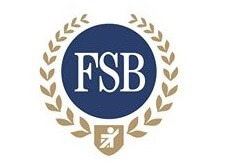The Federation of Small Businesses (FSB) has some funny ideas at times.
Whether it be painting all small businesses as victims, all big businesses as bullies, and in doing so seemingly not realising that all businesses start out small and some grow big.
Or whether it is warning off their members from using the services of energy brokers, costing them many millions of pounds in excessive energy costs in doing so.
Whichever or whatever it’s fair to say that at times it is a challenge to understand the FSB’s focus, intent and ideals.
However now we really are confused.
The FSB claims to have “held talks with Ofgem” in order to change the rules of energy supply so that “small” companies who generate their own electricity will, rather than is the current situation and sell any excess energy back to the market, instead be able to sell this directly to retail customers and in doing so will become a de facto energy supplier.
Allen Creedy, of the FSB, has said:
“Small businesses are looking to disrupt the industry and introduce more competition. If they can sell their power to housing estates or a factory, it’s a no-brainer.”
We wouldn’t call it a no-brainer. In fact it couldn’t be any less a no-brainer if that still means what we think it does. But in this crazy world of FSB – Ofgem nothing is clear any more.
Put simply, this is an incredibly simplistic and unworkable idea that would prove an unmitigated disaster for all involved. In fact it makes Miliband’s price freeze look like a candidate for the Nobel prize for economics.
Currently, those businesses who have some form of embedded generation in or about their premise (on its simplest level a solar panel) can firstly provide for their own needs and secondly, if there is excess energy available at a point in time, can sell this ‘back to the grid’ in return for payment. In addition they can benefit from various subsidies including the Feed In Tariff.
This is a good deal, and with the activities of suppliers like Smartest Energy who actively provides a market for such suitably equipped customers, this is a mature and proven niche sector.
What it isn’t however is a route to energy supply.
Energy Supply
Energy supply is not difficult in terms of the delivery of the energy. The network exists, the connections to it exist, electricity that is generated at whatever input point flows to whatever output point, and it isn’t labelled, or ‘set aside’ for certain customers.
Rather it is a big pot, with lots of people pouring in and even more drinking out of it. That, quite frankly is the easy part.
The difficult part?
- Customer management,
- Contracting,
- Pricing,
- Forecasting,
- Hedging
- Billing,
- Estimating consumption,
- Tracking tenants,
- Collecting monies.
These ‘back office’ functions are critical to any business not least an energy supplier.
For the FSB to think, that simply by virtue of having a short term, indeterminate and unpredictable glut of energy means that “small business” can turn themselves into fully-fledged energy suppliers is utter folly.
Overlaid onto the administrative and cost difficulties inherent in this proposal is the simple fact that the energy provided is by its very nature from small-scale generation.
This generation is built to satisfy one core source of demand, the customer itself.
As a result any ‘surplus’ is entirely dependent on personal usage and the vagaries of the generation technology employed. Wind energy does not generate when it’s not windy, solar panels are inefficient, likewise CHP plant.
So a small business, with some generation capacity, promises to sell its energy to their neighbour, doesn’t have sufficient volume to do so, but the neighbour still demands and receives their energy (remember the big pot) and the small business with the “no brainer” suddenly has to buy in the wholesale market to cover the cost of the energy they promised and which was delivered but which they did not generate. Cue small businesses faced with impossible to manage wholesale market costs, the inability to hedge risk and zero credit collateral trying to cover their ‘losses’ by buying in the spot market. The inevitable result? That well run small business is no more. Finished. Bust. Gone.
No brainer? No brains more like.
